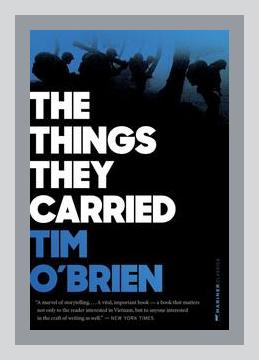Summary of “The Things They Carried” by Tim O’Brien
Introduction
“The Things They Carried” by Tim O’Brien is a powerful and haunting novel that blurs the lines between fiction and memoir. Set during the Vietnam War, the book is a collection of linked short stories that explore the emotional and psychological burdens carried by soldiers. O’Brien, a Vietnam veteran himself, uses his narrative to delve into the complexities of war, memory, and the human condition. Through vivid storytelling and rich character development, O’Brien paints a visceral picture of the soldiers’ experiences, making the reader feel the weight of the things they carried—both physical and emotional.
The Burden of War: Physical and Emotional
The title story, “The Things They Carried,” introduces the reader to Lieutenant Jimmy Cross and his platoon of soldiers. The narrative focuses on the literal and figurative burdens they carry during the war. Each soldier carries specific items that are both necessary for survival and symbolic of their personalities and fears. For instance, Ted Lavender carries tranquilizers and marijuana to cope with his anxiety, while Kiowa, a Native American, carries a Bible and a pair of moccasins, signifying his cultural and spiritual heritage.
The physical items they carry, such as weapons, rations, and letters from loved ones, are meticulously detailed, but the emotional burdens are far heavier. Lieutenant Cross is obsessed with thoughts of Martha, a girl he loves back home, and he blames himself for the death of Ted Lavender, believing that his distraction with Martha led to Lavender’s death. This guilt haunts him throughout the story, illustrating how the soldiers’ mental burdens often outweigh the physical ones.
Example 1: The death of Ted Lavender is a pivotal moment in the book. His death is sudden and senseless, highlighting the randomness and brutality of war. “They carried all the emotional baggage of men who might die. Grief, terror, love, longing—these were intangibles, but the intangibles had their own mass and specific gravity, they had tangible weight.” This quote encapsulates the central theme of the story—the emotional weight the soldiers carry is just as real as their physical loads.
Storytelling and Memory
In the story “How to Tell a True War Story,” O’Brien delves into the nature of storytelling and memory. He challenges the reader to question what is true and what is fiction, asserting that in war, the truth is often elusive. O’Brien states that a true war story is never moral and does not instruct; it simply exists, capturing the raw and brutal reality of war. The story recounts the death of Rat Kiley’s friend, Curt Lemon, and how Kiley writes a letter to Lemon’s sister, who never responds. The story emphasizes the futility of trying to convey the experience of war to those who have not lived it.
O’Brien repeatedly blurs the line between reality and fiction, asking the reader to consider whether the truth matters if the story conveys the emotional essence of the experience. He suggests that the stories told by soldiers are a way of processing their trauma and making sense of the senselessness of war.
Example 2: In “How to Tell a True War Story,” O’Brien writes, “A true war story is never about war. It’s about sunlight. It’s about the special way that dawn spreads out on a river when you know you must cross the river and march into the mountains and do things you are afraid to do.” This quote reflects the idea that war stories are often about the small, seemingly insignificant moments that hold deep emotional resonance.
The Ghosts of the Past
“The Things They Carried” is also a meditation on memory and the inescapability of the past. In the story “Speaking of Courage,” Norman Bowker drives around a lake in his hometown, haunted by the memory of Kiowa’s death. Bowker feels disconnected from the world around him, unable to articulate his experiences to those who have not been through the war. The story illustrates the isolation that many veterans feel when they return home, burdened by memories that they cannot share or escape.
Bowker’s story is a tragic reflection on the long-term impact of war on soldiers’ psyches. His inability to find closure or express his trauma leads to his eventual suicide, a grim reminder of the war’s lasting scars.
Example 3: In “Speaking of Courage,” Bowker’s silent struggle is encapsulated in the quote, “He could not talk about it and never would
